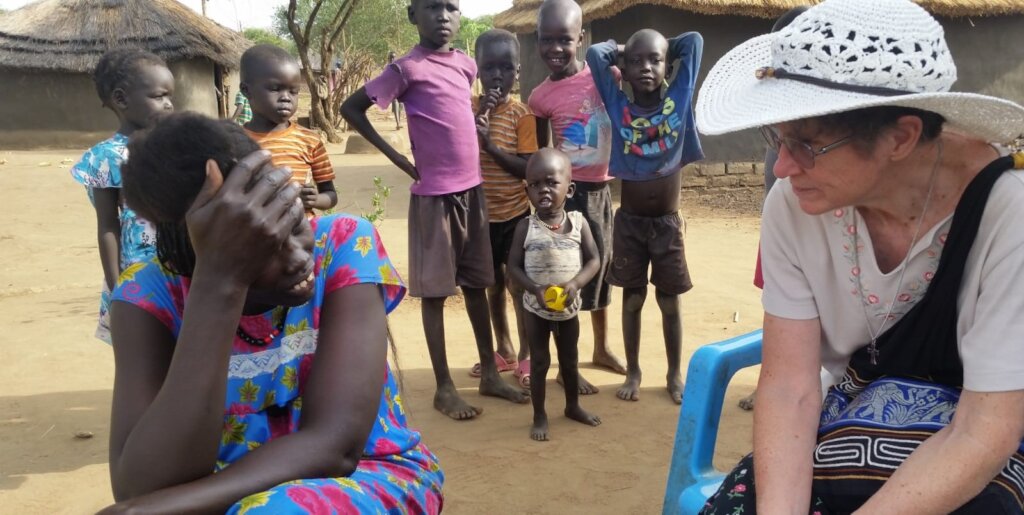By Sr Marilyn Lacey | Executive Director
Over the past 3 months, Mercy Beyond Borders enrolled 45 more refugee women to become entrepreneurs. Why is that so important?
Refugees living in UN camps receive monthly rations, but they are designed to be "subsistence level" -- enough to keep a person alive, but not enough to keep hunger at bay. Rations consist of grains such as rice or corn along with cooking oil. Nothing more. No fresh vegetables of fruits. No variety. And over the past 2 years, those simple rations have been reduced by over 40% in all camps globally due to shortfalls in UN revenue.
That's why your support of the Refugee Women entrepreneurs matters so much! Mercy Beyond Borders enrolls refugee women into its basic business training workshops and then provides $200 loans for these women to start their own small businesses. The income these entrepreneurs earn thru the work of their hands supplements those meagre UN rations. It also gives these women tremendous self-confidence and hope. They see themselves now as capable survivors, not just vulnerable exiles.
This is the story of one of them: Deborah (name changed for privacy)
Deborah remembers the exact day when her village was attacked by armed cattle rustlers in Jonglei, South Sudan back in 2012. (She has been living in the refugee camp for 9 years now.)
“It was horrible,” she says, holding her head in her hand. “The raid killed dozens of people, including my relatives and all of our cattle. We scattered to different directions for dear life. After some months barely surviving in the forests, my 5 children and I joined some other displaced people walking southward. At first we stopped in Juba, the capital city of South Sudan, but life there was impossible due to high prices and always being scared of violence, especially against women.”
Eventually they reached the border of Uganda and, after a long registration process, they were allowed to settle in Olua II refugee camp. Life remained very difficult in the camp with only minimal access to any health care, education or economic services.
“We receive food rations,” says Deborah, “but we always feel hunger. The UN reduced the amount by 2/3 because they have run low.
“A new dawn came for me i when I enrolled in the Mercy Beyond Borders micro-enterprise loan program. They organized and taught us for 3 days: how to form a group and elect officers, how to convene meetings, how to record our savings and know the difference between my loan and my profits. Using my MBB loan, I established myself as a community lender! Me, a refugee woman who never before had handled money or made my own decisions! Up to now this has brought me good income and I feel proud. With that success and since we were born cattle keepers, I have purchased two heifers after repaying my MBB loan.”
Deborah encourages other women to apply for an MBB Micro-Enterprise loan. She tells them: “You will be able to support your own families even when husbands are not with you. Children’s school fees and stomachs and medical needs cannot wait for men.”
Deborah lifts her head and says to Sister Marilyn, “We women praise the Mercy Beyond Borders supporters because they are the great ones who are lifting us up. Shukran [Thank You].”
Project reports on GlobalGiving are posted directly to globalgiving.org by Project Leaders as they are completed, generally every 3-4 months. To protect the integrity of these documents, GlobalGiving does not alter them; therefore you may find some language or formatting issues.
If you donate to this project or have donated to this project, you can receive an email when this project posts a report. You can also subscribe for reports without donating.


